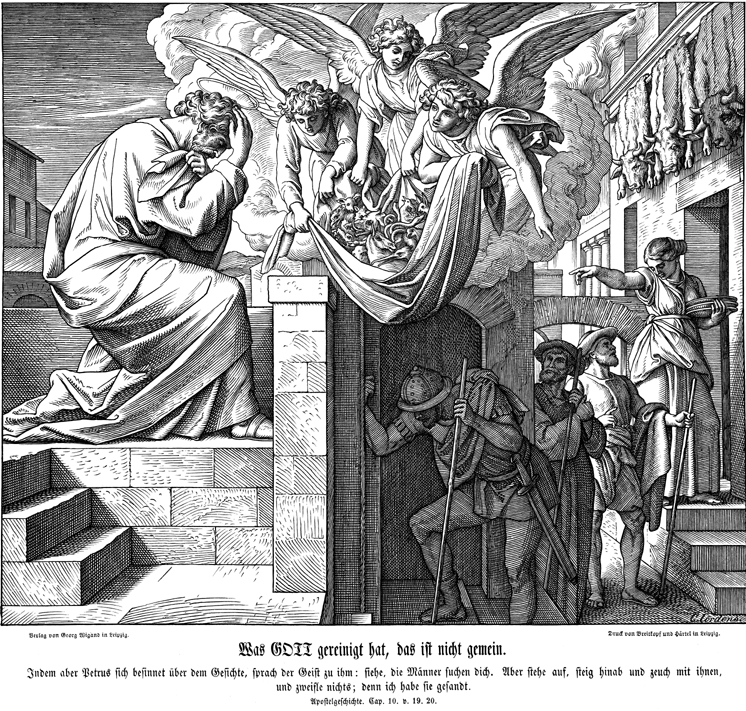Good morning! Today is the first day of our eighth week, reading the Bible through together in a year. Our scriptures this week are:
- Leviticus 8-11; Hebrews 4; Psalm 110
- Lev 12-14; Heb 5; Psalm 111
- Lev 15-18; Heb 6; Psalm 31
- Lev 19-20; Heb 7
- Lev 21-23; Heb 8
This is in stark contrast to Acts chapter 10 (ESV), where Peter sees a
vision of a sheet with all kinds of animals coming down from heaven.
Some were clean animals, and others were unclean.

13 And there came a voice to him: “Rise, Peter; kill and eat.” 14 But Peter said, “By no means, Lord; for I have never eaten anything that is common or unclean.” 15 And the voice came to him again a second time, “What God has made clean, do not call common.” 16 This happened three times, and the thing was taken up at once to heaven.
In an instant, God declared that there is a different way of living in the new covenant that there was in the old. The old covenant had its rules and rituals to keep people pure. The new covenant just has Jesus. Peter not only learned a lesson about food that day, but he also learned a lesson about people. Notice the visitors at Peter's door in the picture above. God was symbolically telling Peter that "unclean" gentiles were also cleansed by the blood of Jesus. Peter would accept his Roman visitors, and accompany them to the house of the centurion Cornelius to share the gospel, and the whole household would be saved.
When I read all the cleanliness laws and other regulations in Leviticus, it just makes me glad that I live under the New Covenant with Jesus--where we don't have to worry about ritual cleanliness or missteps that result in being consumed by fire.
The problem is that many Christians, though they have been set free by the pure and spotless Lamb (Jesus), still live as though they are under the Law. They live as if they could buy their salvation with good works, and judge others who don't live up to their righteous expectations. James 4:12 (ESV) says: "There is only one lawgiver and judge, he who is able to save and to destroy. But who are you to judge your neighbor?"
We must be careful, in our considerations of what's clean and unclean, that we don't take up the old covenant again. Why, when we have been set free by the new covenant, would we want to be enslaved again by the old covenant with its laws and regulations? Instead, as Peter did, we can live as free women and men--free to enjoy the grace that God has given us, and free to share His grace with others.

No comments:
Post a Comment